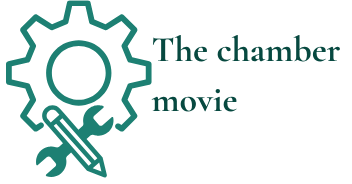Table of Contents
ToggleIn the wild world of career paths, navigating through various theories can feel like trying to find a needle in a haystack—if that needle also had a side job as a motivational speaker. Career development theories offer a roadmap, guiding individuals through the twists and turns of their professional journeys. These theories aren’t just academic jargon; they’re the secret sauce that can transform a mundane job search into a fulfilling career adventure.
From the classic stages of development to contemporary models that embrace the chaos of modern work life, understanding these theories can empower anyone to take charge of their career. So why not dive into the fascinating realm of career development theories? Who knows? It might just be the key to unlocking a future where Mondays are something to look forward to instead of dreaded.
Overview of Career Development Theories
Career development theories serve as essential frameworks for individuals navigating their professional paths. Many of these theories focus on understanding how people make choices about their careers over time. Theories vary in approach, from traditional to behavioral models, each offering unique insights.
Super’s Life-Span, Life-Space Theory emphasizes that career development evolves through multiple life stages. Individuals explore various roles during childhood, adolescence, and adulthood, which significantly influences their career trajectories.
Holland’s Theory of Career Choice categorizes personality types and aligns them with corresponding work environments. By recognizing their personality types, individuals can identify suitable career paths that align with their strengths and interests.
Krumboltz’s Social Learning Theory highlights the impact of learning experiences on career decisions. According to this theory, individuals learn from observations and reinforce their career paths based on prior experiences and external influences.
Conveniently, these theories collectively illustrate that career development is not a linear process. They emphasize the importance of adaptability and continuous learning as individuals encounter new opportunities and challenges.
Research by the National Career Development Association indicates that effective career development improves job satisfaction and overall well-being. Awareness of these theories allows individuals to make informed decisions about their careers, enhancing both personal and professional growth.
Major Theories in Career Development

Career development theories serve as essential frameworks that help individuals understand and navigate their career paths. Several prominent theories have emerged over time, providing valuable insights into the complexities of making career choices.
Super’s Developmental Model
Super’s Developmental Model outlines career development as a lifelong process consisting of five stages. These stages include growth, exploration, establishment, maintenance, and decline. Individuals progress through these stages at different ages, confronting unique decisions and challenges along the way. Super emphasizes that self-concept greatly influences career choices, as individuals seek roles that align with their personalities and values. By recognizing these stages, individuals can better navigate their career journeys, making informed decisions that reflect their evolving identities.
Holland’s Theory of Career Choice
Holland’s Theory of Career Choice categorizes personality types into six distinct groups: realistic, investigative, artistic, social, enterprising, and conventional. Each type corresponds to compatible work environments that enhance job satisfaction. People generally thrive in careers that match their personality traits, leading to higher engagement and success. Through this theory, individuals gain a deeper understanding of their preferences, making it easier to choose career paths that resonate with them. Employers also benefit from this theory, as it aids in optimizing workforce alignment, ultimately creating a more harmonious workplace.
Krumboltz’s Social Learning Theory
Krumboltz’s Social Learning Theory highlights the impact of learning experiences on career decision-making. According to this theory, individuals shape their career paths based on the information gathered through observations and interactions. Learning occurs in both formal and informal settings, influencing skills and preferences. Krumboltz introduces the concept of chance events, emphasizing that unexpected opportunities can play a significant role in career development. This theory encourages individuals to remain open to new experiences and adapt their career goals accordingly, fostering continuous personal and professional growth.
The Role of Personality in Career Development Theories
Personality plays a critical role in shaping career development theories. Understanding one’s personality can significantly influence career decisions and satisfaction.
Personality Assessment Tools
Personality assessment tools, such as the Myers-Briggs Type Indicator (MBTI) and the Strong Interest Inventory, provide valuable insights into individual traits. These instruments help individuals identify their strengths and preferences. Assessments reveal how specific personality types connect with various career paths, enhancing decision-making processes. By leveraging these tools, individuals obtain a clearer picture of their potential careers. Employers often utilize these assessments to improve employee fit and satisfaction, increasing overall productivity.
Aligning Career Choices with Personality
Aligning career choices with personality leads to greater job satisfaction and improved performance. Each personality type, as per Holland’s Theory, corresponds to suitable work environments. People inclined towards realism may thrive in hands-on jobs, while those with artistic tendencies may flourish in creative fields. Making career decisions that resonate with personal values and interests fosters motivation and engagement. Career development efforts benefit when individuals embrace roles that match their personalities, paving the way for a fulfilling professional journey.
The Influence of External Factors on Career Development
External factors significantly shape career development, influencing decision-making processes and overall trajectories.
Economic Trends
Economic conditions impact job availability and prospects for advancement. During periods of growth, organizations often expand and offer more employment opportunities. Conversely, recessions lead to job cuts and limited hiring, forcing individuals to adapt their career plans accordingly. Moreover, specific industry trends, such as technological advancements and shifts towards remote work, create demands for new skill sets and specialties. Individuals who align their career paths with these economic realities are more likely to thrive. Research from the Bureau of Labor Statistics indicates that understanding economic trends can enhance decision-making and lead to sustainable career choices.
Social and Cultural Influences
Social and cultural contexts influence career aspirations and choices. Family expectations and societal norms often shape individuals’ perceptions of acceptable career paths. For instance, some cultures place a high value on specific professions, which can direct career interests from an early age. Peer networks and role models play a crucial role, as individuals often draw inspiration from those they admire. Gender, race, and socioeconomic background also affect access to opportunities and career advancement. Studies highlight that being aware of these social factors can empower individuals to navigate challenges and seize opportunities effectively.
Career development theories serve as essential tools for individuals seeking to navigate their professional paths. By understanding these frameworks, they can unlock their potential and make informed decisions that align with their personal values and interests. The interplay of personality, external factors, and continuous learning shapes career trajectories in profound ways.
Embracing adaptability and self-awareness can lead to greater job satisfaction and fulfillment. As individuals explore their options and align their careers with their unique identities, they pave the way for a rewarding professional journey. Ultimately, leveraging these theories not only enhances career choices but also contributes to overall well-being and success in the ever-evolving job market.




